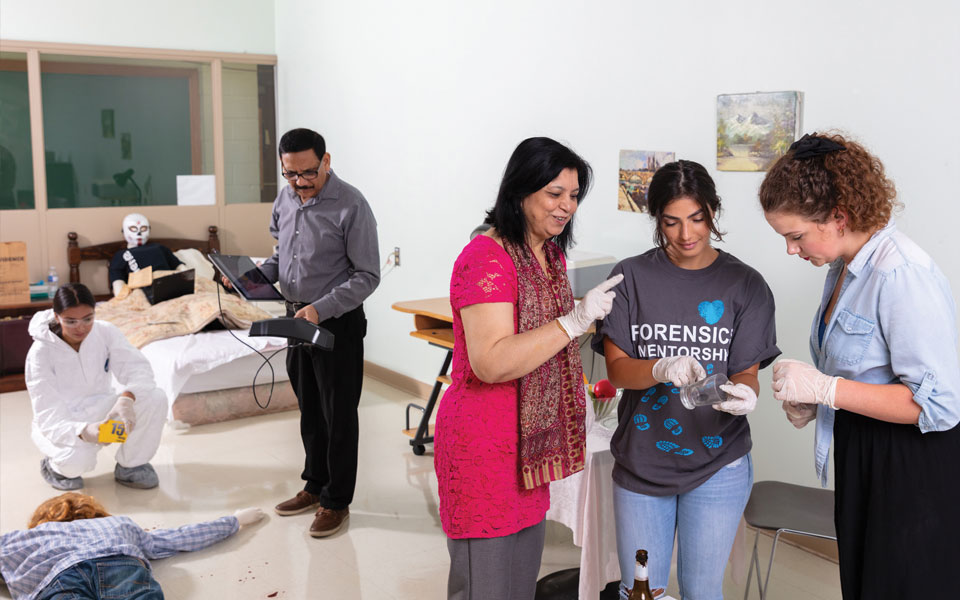
Program Overview & Highlights
- Honours 4-Year Program
- BA
Interested in crime scene investigation? This program allows you to combine forensic courses with a social science like psychology or criminology. You will learn about state-of-the-art forensic technologies, investigative methods and the criminal justice system. Tailor your course selections to your future career.
Our professors conduct forensic casework and incorporate real-life experiences into their teaching. We supplement your classroom learning with mock crime scenes and labs to provide work-place simulations. You’ll get training in scientific techniques and crime scene investigation from a variety of professionals, including academics, forensic practitioners, police, lawyers, and expert witnesses.
Learn More About Our Program
Admission Requirements
High School Student from Canada
Course Requirements: Advanced Functions/MHF4U, Biology/SBI4U, English/ENG4U
Strongly Recommended: Calculus & Vectors/MCV4U
Minimum Average: 70% average of all required science and math courses
Mean Average: 85%
High School Student from Outside Canada and the United States (International)
Course Requirements: Grade 12 Advanced Functions, Grade 12 Biology. Grade 12 English.
Strongly Recommended: Grade 12 Physics
Minimum Average: 70% average of all required science and math courses.)
Mean Average: 85%
Language Requirements
To review the most up-to-date information on Language Requirements: See language requirements.
Academic Calendars
Career Tracks
- Crime scene officer
- border services officer
- behaviour profiler
- Internet security analyst
- forensic psychologist
